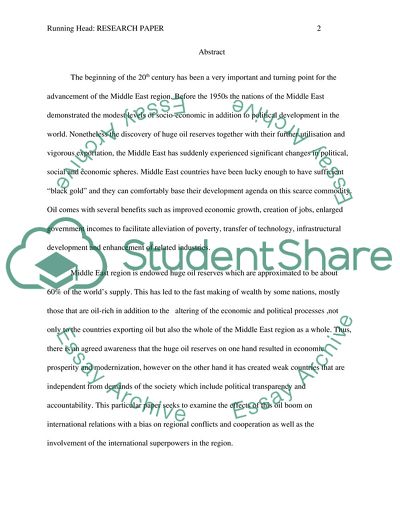Cite this document
(The Oil Boom Effect on the International Relations of the Middle East Coursework Example | Topics and Well Written Essays - 2500 words, n.d.)
The Oil Boom Effect on the International Relations of the Middle East Coursework Example | Topics and Well Written Essays - 2500 words. https://studentshare.org/politics/1826987-how-did-the-oil-booms-affect-the-international-relations-of-the-middle-east-your-answer-should-focus-on-their-impact-on-regional-conflicts-and-regional-cooperation-as-well-as-on-the-involvement-of-the-international-superpowers-in-the-region
The Oil Boom Effect on the International Relations of the Middle East Coursework Example | Topics and Well Written Essays - 2500 words. https://studentshare.org/politics/1826987-how-did-the-oil-booms-affect-the-international-relations-of-the-middle-east-your-answer-should-focus-on-their-impact-on-regional-conflicts-and-regional-cooperation-as-well-as-on-the-involvement-of-the-international-superpowers-in-the-region
(The Oil Boom Effect on the International Relations of the Middle East Coursework Example | Topics and Well Written Essays - 2500 Words)
The Oil Boom Effect on the International Relations of the Middle East Coursework Example | Topics and Well Written Essays - 2500 Words. https://studentshare.org/politics/1826987-how-did-the-oil-booms-affect-the-international-relations-of-the-middle-east-your-answer-should-focus-on-their-impact-on-regional-conflicts-and-regional-cooperation-as-well-as-on-the-involvement-of-the-international-superpowers-in-the-region.
The Oil Boom Effect on the International Relations of the Middle East Coursework Example | Topics and Well Written Essays - 2500 Words. https://studentshare.org/politics/1826987-how-did-the-oil-booms-affect-the-international-relations-of-the-middle-east-your-answer-should-focus-on-their-impact-on-regional-conflicts-and-regional-cooperation-as-well-as-on-the-involvement-of-the-international-superpowers-in-the-region.
“The Oil Boom Effect on the International Relations of the Middle East Coursework Example | Topics and Well Written Essays - 2500 Words”. https://studentshare.org/politics/1826987-how-did-the-oil-booms-affect-the-international-relations-of-the-middle-east-your-answer-should-focus-on-their-impact-on-regional-conflicts-and-regional-cooperation-as-well-as-on-the-involvement-of-the-international-superpowers-in-the-region.


